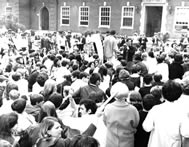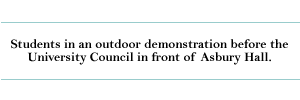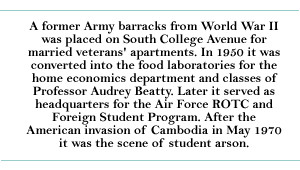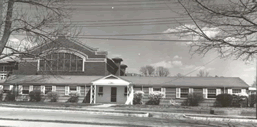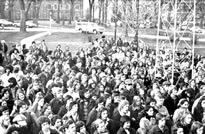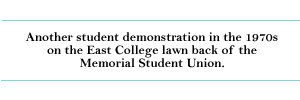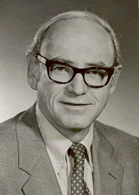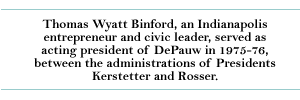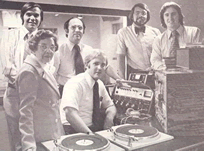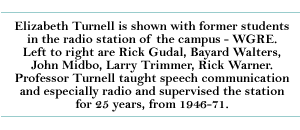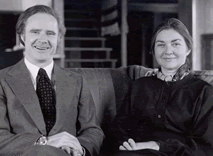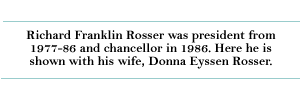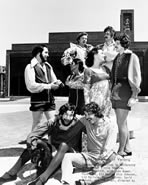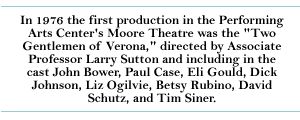
|
Pages: << Back 6 7 8 9 10 11 12 13 14 15 Next >> The
second phase of the student rebellion arose in reaction to the United
States military intervention in Vietnam in 1965. Passionate debate
of the issues took place, both in and out of class. Anti-war protestors
participated in the Washington Peace March in October 1966, organized
teach-ins on campus, and observed National Moratorium Day in 1969.
President Richard Nixon's decision to send troops into Cambodia
in April 1970 brought matters to a boiling point.
A
third aspect of the student movement has been called a cultural
revolution, affecting such matters as living arrangements, dating
and sexual behavior, clothing styles and the like. Proms and other
formal events lost favor with undergraduates, who chose to pursue
personal fulfillment and sought relevance rather than tradition.
A principal demand of many students was for relaxation of the university's
social and parietal regulations, especially in regard to closing
hours for women's residences and coed visitation privileges. After
a series of confrontations with student groups during the 1968-69
academic year, the administration made significant concessions on
these questions that virtually ended the university's longstanding
in loco parentis role.
After
an extensive search conducted by a joint faculty-trustee alumni-student
committee, the board of trustees named to the vacant presidency
Richard F. Rosser, dean of faculty and professor of political science
at Albion College, a member with DePauw of the Great Lakes Colleges
Association. Rosser, a graduate of Ohio Wesleyan with both a master's
degree in public administration and a Ph.D. from Syracuse University,
had retired from the Air Force after serving as professor and head
of the department of political science at the Air Force Academy.
Though a Methodist layman, he was the first nonordained president
of DePauw. He brought to his new post in February 1977 a brisk,
energetic, and forceful administrative style.
Other
faculty members named to part-time administrative posts were the
following: Robert H. King of the philosophy and religion department
as assistant to the president; John White of the philosophy and
religion department as faculty development coordinator; Amir Rafat
of the political science department as director of foreign study
and off-campus programs, succeeded later by Darrell La Lone of the
sociology and anthropology department; Margaret E. Catanese of the
economics and business department as coordinator for individual
Winter Term off-campus projects; and Myra J. Rosenhaus of the philosophy
and religion department as director of convocations. |
Depauw University e-history | E-mail comments to: archives@depauw.edu
